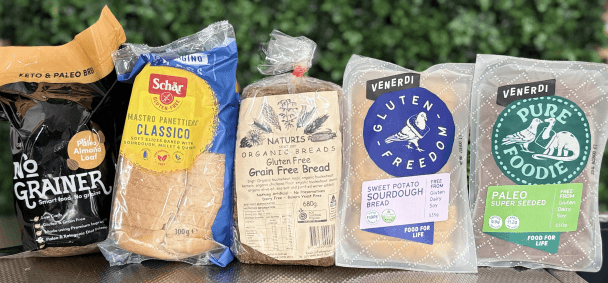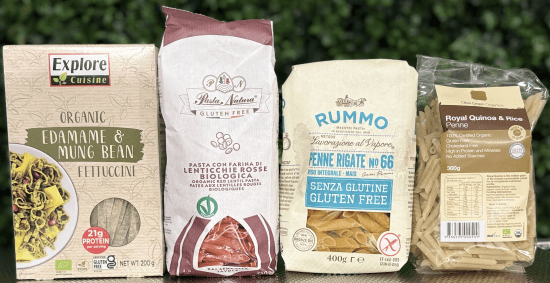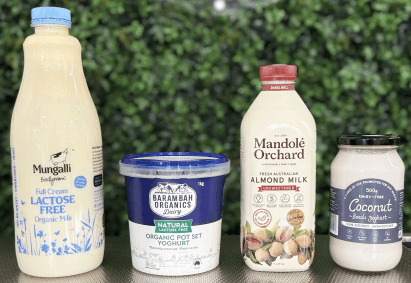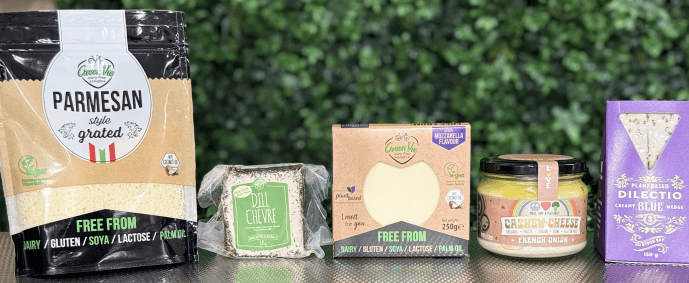Mediterranean Diet for Specific Dietary Needs
How to Make the Mediterranean Diet Work for Your Specific Dietary Needs
If you have specific dietary needs like gluten-free, lactose-free, or even low or high-carb requirements, the Mediterranean diet offers a flexible approach to maintain your health without losing out on flavour or enjoyment.
Having experimented with various alternatives, even without any food sensitivities myself, I’ve discovered some fantastic options that cater to different specific dietary needs while bringing new textures and flavours to the table.
Gluten-Free Options
Living gluten-free doesn’t mean giving up the foods you love. Today, you can find an array of gluten-free substitutes that fit right into the Mediterranean lifestyle.
Gone are the days when you had to give up bread or pasta. Today, there are numerous gluten-free alternatives available that cater to every palate. Instead of traditional wheat bread, consider options like gluten-free whole grain bread made from a blend of rice flour, almond flour, or tapioca flour. These not only offer a delightful texture but also a range of nutrients.

I've also experimented with various flour alternatives like oat, coconut, hazelnut, buckwheat, and cassava flour to create delicious pancakes, cakes, and desserts.
For pasta lovers, gluten-free pasta options made from corn, legumes, or quinoa provide a fulfilling and protein-rich alternative without the gluten. I have found that they cook beautifully and pair wonderfully with your favourite sauces and toppings.
When it comes to grains, rice, Quinoa, and buckwheat are fantastic choices that can replace couscous or traditional grain side dishes.

With these tasty substitutes in your culinary arsenal, you can easily enjoy a diverse range of gluten-free meals without ever feeling deprived.
Lactose-Free Alternatives
Today, there are plenty of lactose-free dairy products available, including milk, yogurt, and cheese.
Lactose-free dairy products are just regular milk, yogurt, and cheese that have had the lactose sugar removed or broken down, so they're easier to digest for those who are lactose intolerant.
Additionally, you can enjoy a variety of plant-based milk alternatives such as almond, oat, cashew, macadamia, hazelnut, soy, and coconut milk.
For those who prefer yogurt, there are options made from coconut, soy, oat, and almond.

Cheese made from soy or cashew serves as a great alternative for those seeking dairy-free options. Personally, I don’t have any issues with lactose, but after trying both, I found that I prefer the taste of cashew cheese. To my surprise, it’s quite similar to cheese in flavour.

You can also use olive oil or avocado as substitutes for creamy sauces and cheeses, adding a richness to your meals.
Low-Carb Choices
If you're interested in exploring a low-carb diet, start by prioritising non-starchy vegetables such as zucchini, cauliflower, broccoli, spinach, and other leafy greens. These nutrient-dense options are not only low in carbohydrates but also high in vitamins and minerals, making them ideal substitutes for grains and beans.
Incorporating a variety of proteins is essential for a well-rounded diet. Choose lean sources such as fish, chicken, turkey, and plant-based proteins such as tofu or tempeh. These proteins help keep you satisfied throughout the day. It's also important to enjoy legumes in moderation, as they can fit into a low-carb plan when balanced with your overall intake.
Get creative with your meals. Consider using gluten-free wraps or crisp lettuce leaves as delicious bases for sandwiches, tacos, or even burgers. You can also experiment with spiralled vegetables as pasta alternatives or use cauliflower rice as a base for stir-fries and curries.
Additionally, spice up your dishes with herbs and spices, and don’t shy away from healthy fats like avocados, olive oil, and nuts, which can enhance both flavour and satisfaction.
High-Carb Fuel
High-carb eating isn't just a way of eating for me, it's a way to live an energised life!
I believe high-carb eating is a great approach to fuelling your body with the energy it craves.
I absolutely love incorporating wholesome, high-carbohydrate foods into my meals. By focusing on whole grains and nutrient-rich sources, I ensure that I stay energised, satisfied, and in a happy mood throughout the day.
Whole Grains: Emphasising whole grains like brown rice, whole-wheat pasta and quinoa, is a fantastic way to boost your carbohydrate intake healthily. These grains are not only rich in carbohydrates but also packed with essential nutrients, fibre, and antioxidants. For instance, oatmeal can be a wonderful breakfast option that will keep you feeling full and satisfied until lunch.
Legumes: Don't forget about legumes. Lentils, chickpeas, and black beans are high in carbohydrates and fibre. This fibre aids in digestion and helps maintain steady blood sugar levels, providing you with sustained energy. A hearty mixed bean salad or a bowl of lentil soup can be a fulfilling lunch or dinner choice.
Potatoes: One of my favourite carb sources and among the most satiating foods available. Their high fibre content helps you feel full and satisfied, making them an excellent choice for maintaining energy levels.
They are incredibly versatile, whether baked, boiled, or mashed, and can be incorporated into countless recipes. As a fantastic source of carbohydrates, potatoes can enhance a variety of meals and satisfy your hunger in delicious ways.
Fruits: Nature often provides the best sources of carbohydrates. Fruits such as bananas, berries, figs, cherries, apples, pears, watermelon and dates are not just delicious, they're packed with natural sugars, vitamins, and minerals. A simple banana can serve as an energising snack before workouts, while a mix of dried fruits like figs, apricots and dates can be a delicious snack throughout the day.
Healthy Fats
Healthy fats are a cornerstone of the Mediterranean diet, offering both taste and health benefits. Olive oil, nuts, and seeds are all low in carbs and free from gluten and lactose, making them suitable for various specific dietary needs. Drizzle olive oil over salads, enjoy nuts like almonds and walnuts as snacks, and add seeds to smoothies or oatmeal.
Avocados, with their creamy texture, can be used in salads or even blended into smoothies. And let’s not forget fatty fish like salmon and sardines, rich in omega-3s and perfect for a nutritious meal.
The Mediterranean diet is incredibly adaptable, allowing you to enjoy delicious meals while meeting your specific dietary needs. Whether you’re gluten-free, lactose-free, low-carb, or high-carb, there are plenty of ways to customise this diet without sacrificing taste. Experiment with different ingredients and find what works best for you, making your meals both satisfying and healthful.
Remember, eating should be enjoyable, and with the Mediterranean diet, it certainly can be.